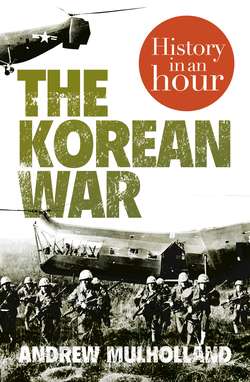Читать книгу The Korean War: History in an Hour - Andrew Mulholland - Страница 6
Culture
ОглавлениеThe Korean language, food and mindset are unlike those of China or Japan. Such distinctions took shape through geographical isolation. From pre-history, the peninsula was relatively self-contained. Linguistically, for instance, Korean is generally accepted to be a unique language, completely unrelated to those of its neighbours. Most scholars regard the overlap with Japanese as a later phenomenon brought about through contact. Although food is based on rice, vegetables and fish, the cooking styles are not those of northern China. The same is true of religion (with a strong Shamanistic tradition), architecture, music and dance.
Once Korea’s history became dominated by neighbouring states, however, this cultural purity began to be diluted and cross-pollinated. For example, spoken Korean (and its precursor dialects) was first transposed into the Chinese Hanja script. The culture, therefore, reflects the geography and supports the idea of Korea as a ‘natural state’. For these reasons, despite a difficult history and continuing division, this is a region with a strong national identity, maintained in the face of frequent conquest.
Korean end-roof tile from 5th or 6th century (Image by pressapochista)
